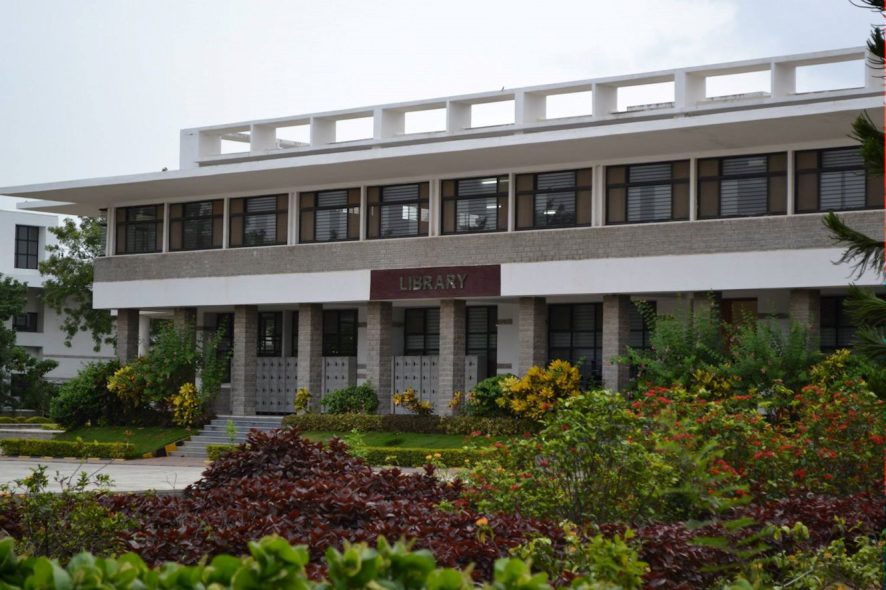The Indian Journal of Constitutional Law (IJCL), a flagship journal of NALSAR University of Law is now accepting submissions for its 9th Volume, to be published in 2019. The journal functions under the aegis of the MK Nambyar SAARCLAW Chair in Comparative Constitutional Studies and the Constitutional Law Society at NALSAR. The annually published and peer reviewed journal seeks to promote scholarship on core and comparative constitutional law issues.
SUBMISSION GUIDELINES
I. Contributions are solicited under the following heads:
1. Articles – 6,000-8,000 words
Articles should contain sustained analysis on legal topics. They may be either doctrinal or theoretical (or both) and must comprehensively deal with all relevant literature on the chosen subject to formulate well-reasoned positions. An Article is therefore ordinarily conservative in its method of analysis.
2. Essays – 4,000-6000 words
Essays, in comparison with Articles, are usually more adventurous in their method, and seek to challenge existing legal paradigms or innovatively address well known problems. It is strongly recommended that essays be considerably more concise, in terms of scope and conceptualization. Fresh approaches to decided issues are encouraged.
3. Case comments – 3,000-4,000 words
Should be study of any contemporary judicial pronouncement (Indian or foreign) and must contain its analysis, the context in which the particular judgment has been delivered, its contribution to existing law and must necessarily comment on the judicial process involved. Critical, comparative pieces dealing with similar issues across jurisdictions are encouraged.
4. Legislative comments – 3,000-3,500 words
This entails a critical analysis of any existing Indian Legislation or proposed Bills and their constitutional implications. The analysis is expected to be original and technical in nature with specific regard to the constitutional provisions.
5. Other submissions – 1,500-3,000 words
Other pieces that do not specifically fall into any of the aforementioned sections will also be considered. The Board specifically solicits Book Reviews, short responses to previous publications and notes on an author’s practical experiences in constitutional litigation, judgment deliberation, legislative drafting, etc.
All word limits are exclusive of footnotes.
II. The contributions should adhere to the following specifications:
1. Citation Format: All submissions must conform to the Standard Indian Legal Citation system. (The same can be accessed at http://www.silcmanual.org/register.html) Speaking footnotes are not discouraged. A submission that is either insufficiently cited or is seen as not adhering to the citation format will be deemed as rejected.
2. Abstract: Every submission must be accompanied by an abstract, of not more than 350 words, that outlines the area of study and any important conclusions that may be drawn by the author(s).
3. Joint Contributions: Collaborative articles and essays by up to two authors shall also be considered.
4. Authors: Authors may submit their designations, current institutional affiliations, email and postal addresses and other such relevant details. Such details shall be mailed in a separate document and must not appear anywhere in the manuscript or the abstract.
III. Submission of Contributions: Submissions should contain the manuscript, abstract and authors’ details in three separate documents. All documents must be in Microsoft Word’s .doc or .docx format only. Submissions must only be in the form of electronic copies. Your submissions will be acknowledged within 48 hours and subject to a thorough review process by the peer review group. In case the submission is accepted, the board shall inform the authors of the reviewer’s comments and the authors will be afforded reasonable time to submit a revised drafts keeping in mind the reviewer’s comments. All submissions and other related queries are to be sent to ijcl@nalsar.ac.in
IV. Deadline: To be considered for the next issue of the journal (2019), we expect the submissions to reach us before September 15, 2018.
V. Contact: The Indian Journal of Constitutional Law
NALSAR University of Law, Hyderabad
Justice City, Shameerpet, Ranga Reddy District, Hyderabad – 500 101
Phone: Siddharth Aiyanna- 9845327546
Rithvik Mathur – 9538820333
Upasana P – 8978612495
Email: ijcl@nalsar.ac.in
All rights are reserved with the management of the Journal.






